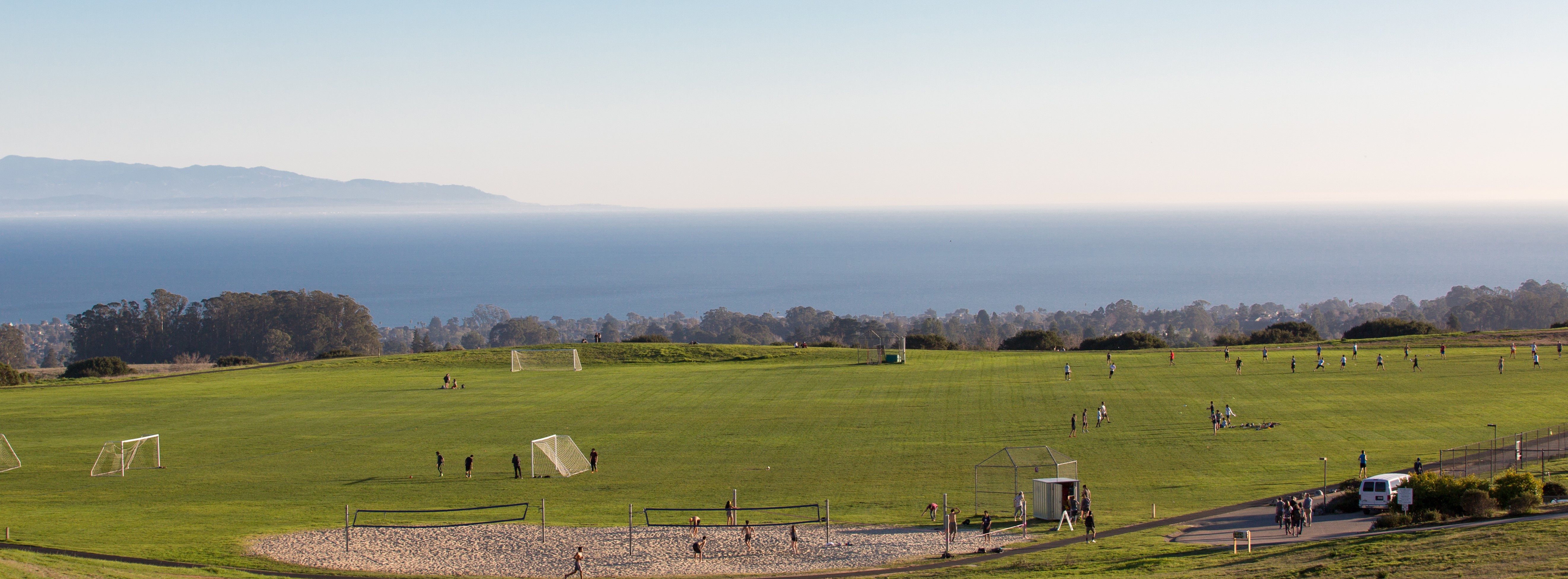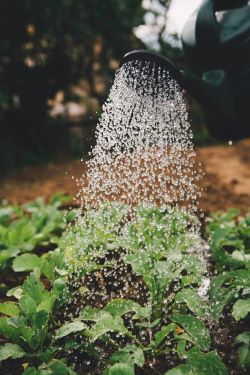
By Tina Mathrani, Carbon Neutrality Initiative Fellow
Josh Goldman, the Assistant Superintendent of Tree Management, Turf and Irrigation Management, Pest Control, and Equipment and Infrastructure works diligently everyday to keep the lush lands of campus looking healthy. Goldman’s expertise was not mastered overnight, starting out on golf course turf management, he brings over 20 years of experience to UCSC. With this knowledge, he has been taking a more holistic approach to analyzing our biome and soil conditions to further improve the health of our grounds and athletic fields. After upgrading UCSC’s turf to more appropriate infrequent but deep watering patterns, Goldman stepped up his water conservation game and installed a new Irrigation Control system that has saved approximately 1 million gallons of water on irrigation of the Lower East Field over the year. “Our previous control system used methods for station run times with little human input. I felt it overwatered and switched to a different system that allowed for more human input. I like to use my five senses to water properly. Nature is always changing, computers have a hard time adapting to these changes day to day. Kyle Smith, my irrigation technician, has played a major role in helping campus save water this year. Kyle and I are beginning to continue this water savings across campus, moving forward. Water is our most precious resource, we need to be smart about using it wisely”, explains Goldman.
On top of these water conservation efforts, Grounds is also actively using organic, sustainable materials and equipment to enhance the fields. On the Upper Field granular organic is used. The Lower Field, the organic fertilizer “Whey2Grow” is utilized as a biostimulant, along with a chicken manure based organic granular fertilizer. Whey2Grow is rich in nitrogen, phosphorus and potash and is sustainably produced from dairy derivatives. Occasionally, a herbicide will be used for any difficult, invasive weeds like Kikuya and Bermuda Grass.

Through the help of Carbon Fund grants, Grounds has been upgrading their gas equipment to electrical technologies and they power other equipment with Fleet biodiesel, producing significantly lower emissions than the average gas powered machines. They choose equipment that has “Tier 4” engines which hone in on reducing two key pollutants: particulate matter (PM) and nitrogen oxides (NOx). This satisfies some of EPA’s strictest emission requirements for small off-road engines.
Through the help of Carbon Fund grants, Grounds has been upgrading their gas equipment to electrical technologies and they power other equipment with Fleet biodiesel, producing significantly lower emissions than the average gas-powered machines. They choose equipment that has “Tier 4” engines which hone in on reducing two key pollutants: particulate matter (PM) and nitrogen oxides (NOx). This satisfies some of EPA’s strictest emission requirements for small off-road engines.
The department doesn’t use any poisons for rodent control. Instead, it has installed dozens of owl boxes and raptor perches across campus to naturally manage rodent infestations on the playing fields. These techniques aid their practice of manually trapping rodents. Since the installation of the predator habitats five years ago, there has been a significant reduction in infestation levels.
Alongside this amazing work on the campus’ fields, Athletic & Recreation’s Wellness Center is continuing to use their 2,825 rainwater collection tank to flush toilets, UCSC’s first prototype rainwater catchment system installed on campus in 2015.
